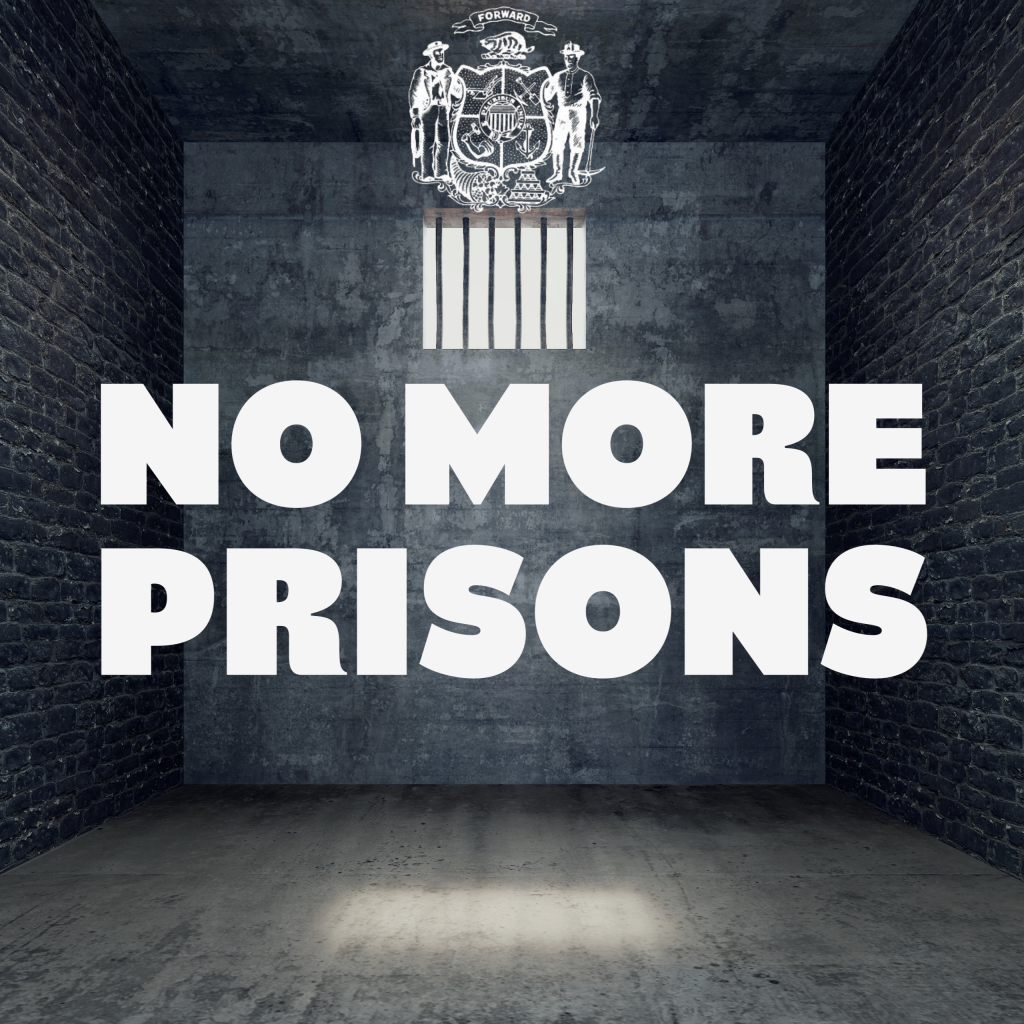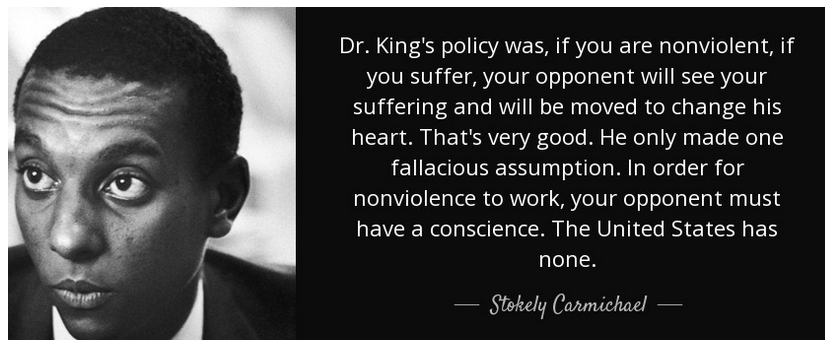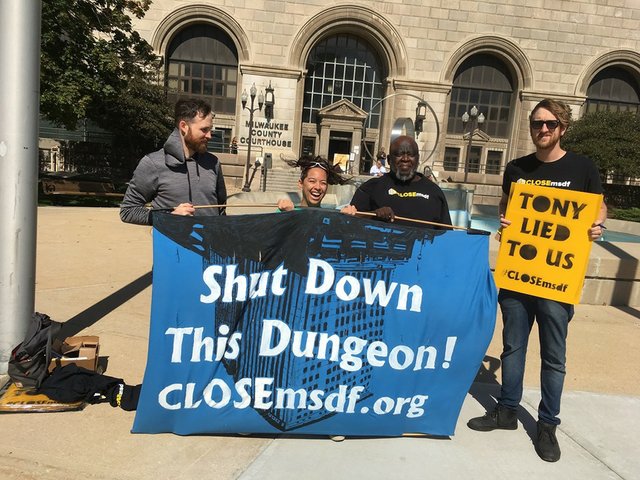
There is increasing bipartisan agreement in the state of Wisconsin behind prison expansion, and the decisions will be made in the budget process. The governor’s budget has already proposed expanded funding for a new youth prison, and expansions to 7 other facilities. The Republican legislature has been trying to build a new prison outside Green Bay for years.
This is the third in our series of articles about how to fight this prison expansion. In the first, we talked about where and when the budget fight would go down. The second tackled who and what we were up against. This one we take on the how and why of fighting prison expansion.
Prison Expansion: How We Fight
The conventional approach to public hearings is to be respectful, make your stories personal, appeal to the conscience of the politicians on the committee to fund beneficial programs and defund harmful programs. Regarding the prison system, that means pleading with them to fund treatment, alternatives, and diversion (TAD), mental health care, and community support, instead of building a new prison.
The ACLU has been recruiting and training people to engage in this approach. WISDOM has organized this year’s Madison Action Day around talking to legislators respectfully and with personal vulnerability. You can join their efforts, take their training, register for their action day, and contact the relevant elected officials. The only trouble is, their approach has proven ineffective.
Last budget cycle many people testified. Formerly incarcerated people talked about their hardships in the prisons, and offered up the worst mistakes of their lives for more public scrutiny. Family members and loved ones bared their souls and pleaded for mercy. Advocates shared statistics, facts and reports. We entreated the politicians on the committee to stop the ongoing humanitarian crisis we were witnessing, but unable to prevent. It was hard. It hurt.
After testifying, the author of this piece crossed paths with then-committee chair, Alberta Darling. Darling is a senator from a gerrymandered district in Milwaukee’s north suburbs. She paused briefly to thank me for my testimony, to tell me that my statements about guard-provoked suicides happening at Green Bay CI and Columbia CI was very effective. Then she signed on to a budget that cut TAD funding and tried to build a new prison. A few months later, she co-sponsored a set of bills that would have further over-crowded the system. She actively worked to multiply the humanitarian crisis I had testified about.
The ACLU mobilized hundreds of people to show up to the capitol to meet with politicians and oppose those bills. Republicans passed them anyway, and it took the Governor’s veto to prevent the new prison and the “tougher on crime” bills from becoming law.
The conventional, respectful approach to budget hearing testimony relies on decision-makers having compassion and a sense of service to the public. These people have none. Their power does not come from the people, it comes from bureaucratic shenanigans. They do not deserve our respect.

The actions of politicians will not serve the people, unless that service also advances their personal ambitions. Politics is nothing but a callous exchange, it is legalized bribery. Lawmakers will not do the right thing unless it aligns with their self-interest. We need to recognize this, to stop pleading and start fighting.
We have little to offer their self interest, especially Republicans. We can’t pay them off like prison-profiting corporations can. We can’t vote them out, because they weren’t really voted in. Their voters did not choose them, they chose their voters. We can’t offer them validation or credibility, because their primary objective is white supremacy, exploitation, and oppression of working class people and people of color.
We cannot leverage incentives for them, because their overriding goal is to harm us. So, instead, we need to leverage consequences to deter them. We must make their choice to build a new prison cost them as much as possible.
To do so will require creativity, commitment, boldness, and gumption. Organizers need to disrupt the processes, catch people off guard, generate harmful media and real-life costs for politicians who want to hurt us and our communities.
The political realities in Wisconsin today are that the Republicans have no shame, and actually relish pressure from people like us. They have so heavily played on politics of racial resentment that Milwaukeeans calling them out might actually boost the support from their indoctrinated base.
Meanwhile, Governor Tony Evers will continue to play meek and mild, to pretend he’s powerless in this situation. We saw him mealy-mouthing his way through his virtual budget hearing last December and called him out for it. He has the power to bypass the fascistic, illegitimate legislature, and reduce overcrowding by releasing people from prison using his pardon power. It is the Republicans who want prison more, but hard as we might push against them, it is Governor Evers who is more likely to actually concede and meet our demands. We just can’t let him get away with pointing blame at his opponents and playing powerless.
So, how we fight is to mobilize through these budget hearings and beyond. We need to build our capacity to wield power against these illegitimate authorities. Talk to your friends and neighbors about the looming threat of prison expansion, join whatever efforts become available. Attend the budget hearings and follow this space to hear about future demonstrations.
Prison Expansion: Why We Fight.
Wisconsin’s prison system is incredibly abusive. Its not like some southern prisons where guard corruption and lax security leads to violent disruptions and footage from contraband cell-phones exposing unsanitary and dangerous conditions. Instead, Wisconsin’s prisons are tightly controlled. The prisons here mainly operate on psychological abuse, though guards can often also get physical.
Wisconsin is also one of the most racially targeted prison systems in amerika. People from Milwaukee’s north side are recirculated between prison and poverty at such high rates that the DOC built MSDF, a prison specifically to serve that purpose. No other state has a prison like MSDF.

Meanwhile, prison expansion also allows for the neglect and marginalization of working class and low income people living in rural Wisconsin. Rather than funding opportunities and infrastructure to revitalize struggling rust belt and farming communities, politicians take the shortcut: build prisons and call it job creation. Nevermind that prison guards often hate their jobs.
Holding people captive is not good, honorable work for Wisconsinites. The routine abuse guards have to engage in or condone eventually comes home to impact their personal lives. Depression, suicide, child abuse and intimate partner violence are all heightened for prison gaurds. It’s no wonder that guard turnover in the Wisconsin prison system is so high.
Also, the incarceration rates for white people from rural communities have been climbing in recent years. In some areas, they’ve even surpassed urban communities of color. Prison is a tool of the rich to control, exploit, and abuse the rest of us.
Allowing prison expansion to go forward, even the governor’s less ambitious proposed expansions, means increasing the government’s capacity to harm and oppress people. The more prison beds there are in Wisconsin, the more aggressive cops and courts can be, the more arrests, convictions, long sentences, and deaths behind bars Wisconsinites will suffer. Allowing politicians to keep putting resources into prison allows them to deny resources to everything else.
